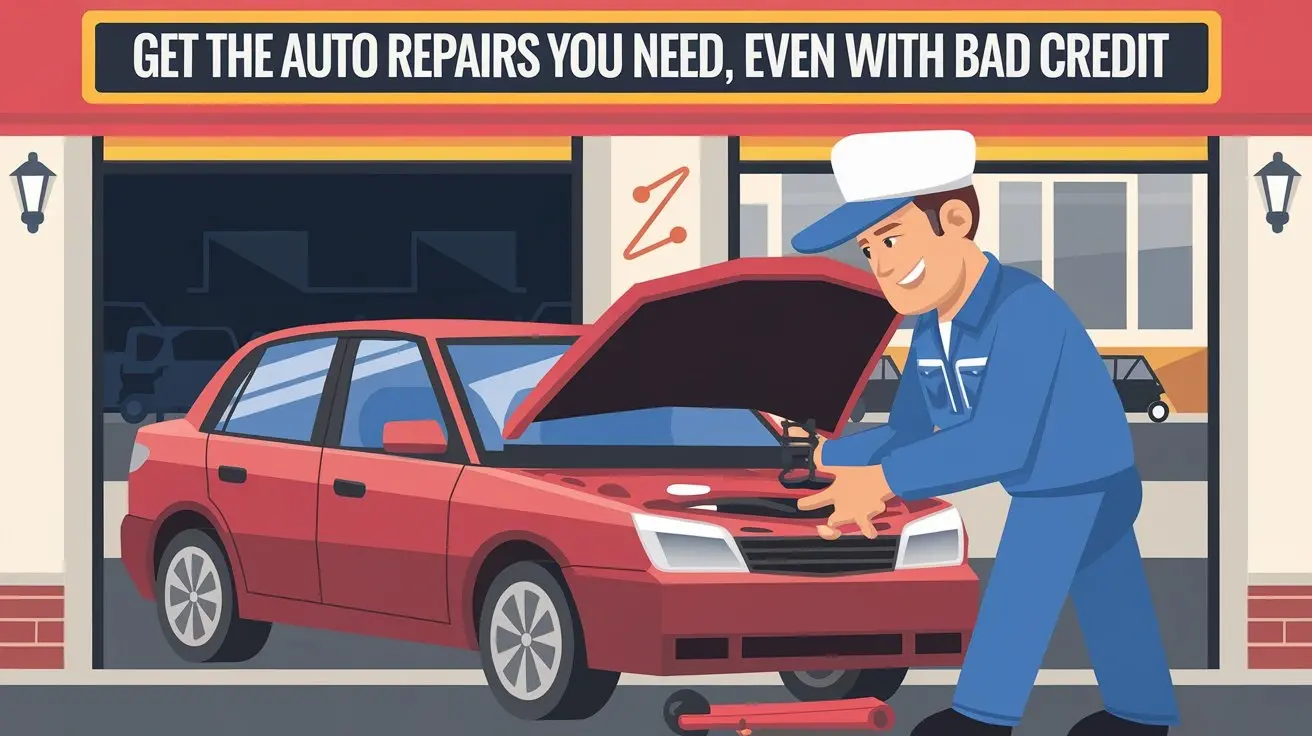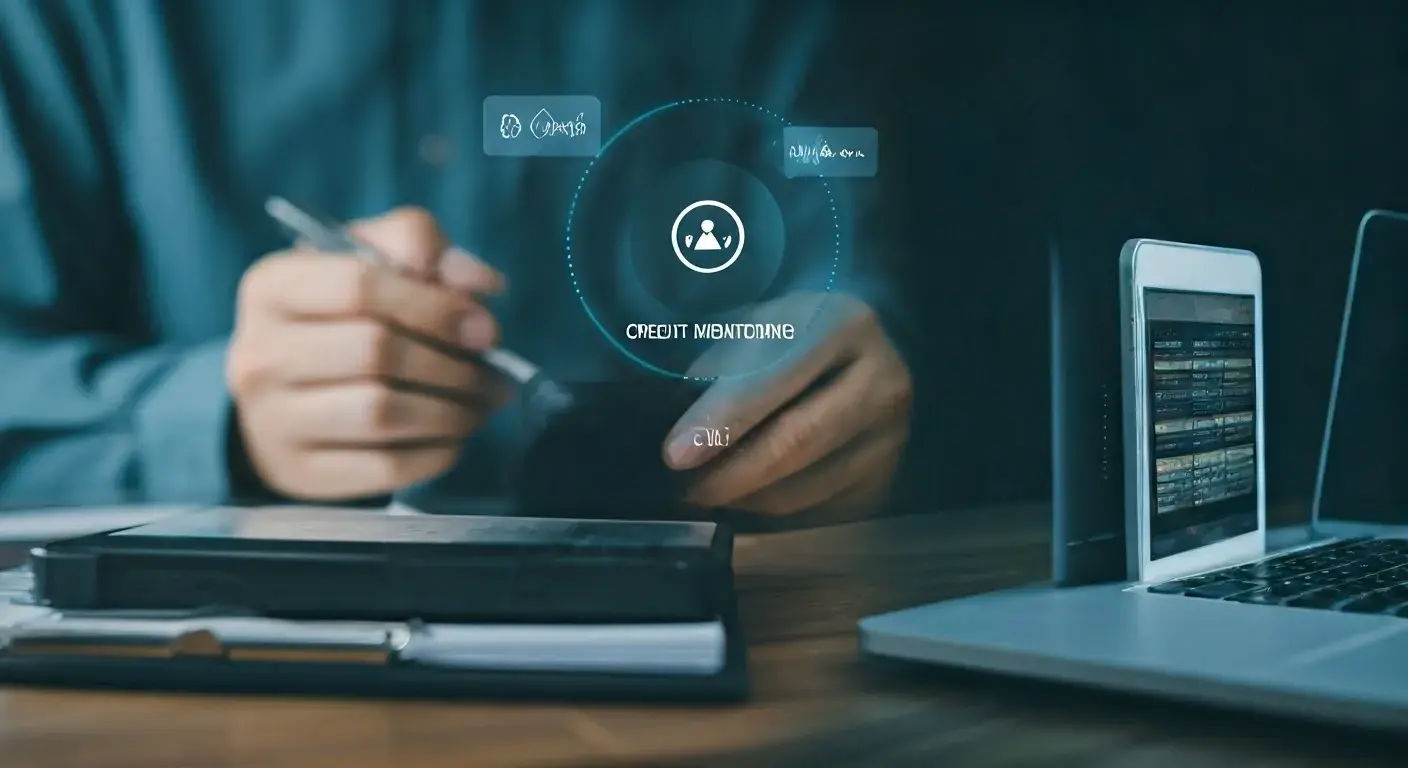-
Posted on: 21 Oct 2024

-
A reliable vehicle is essential for many aspects of modern life. Whether you rely on your car for commuting to work, running errands, or taking your family on trips, a breakdown can throw a serious wrench into your plans. Unexpected auto repairs can be incredibly stressful, especially when you're already struggling with bad credit. The good news is that having poor credit doesn't have to prevent you from getting the repairs your car needs. This guide will explore various strategies and resources to help you afford essential auto repairs, even with a less-than-perfect credit score.
Understanding the Challenge: Bad Credit and Auto Repairs
Bad credit significantly impacts your ability to access financial products and services. A lower credit score often translates to higher interest rates on loans, difficulty getting approved for credit cards, and even challenges in securing housing. When it comes to auto repairs, bad credit can make it difficult to obtain financing to cover the costs.
Traditional auto repair loans, often offered through banks and credit unions, typically require a good to excellent credit score. While some mechanics may offer in-house financing, these options often come with high interest rates and strict repayment terms, which can be particularly burdensome for individuals with bad credit. Ignoring necessary repairs can lead to even more significant and costly problems down the road, making it a crucial situation to address proactively.
Strategies for Affording Auto Repairs with Bad Credit
Fortunately, several options are available to help you manage auto repair costs, even with bad credit. Here are some effective strategies:
1. Explore Auto Repair Loans Specifically for Bad Credit
Several lenders specialize in providing auto repair loans to individuals with less-than-perfect credit. These loans often come with higher interest rates and may require collateral (such as your vehicle), but they can be a viable option when other sources of funding are unavailable. Researching different lenders and comparing their terms is critical. Consider factors like:
- Interest Rates: Compare APRs (Annual Percentage Rates) to understand the true cost of the loan.
- Loan Terms: Understand the repayment schedule and the total loan duration.
- Fees: Look for hidden fees, such as origination fees, prepayment penalties, and late payment fees.
- Eligibility Requirements: Ensure you meet the lender's basic requirements, such as minimum income and age.
- Reputation: Check online reviews and ratings to assess the lender's reliability and customer service.
Some online lenders to consider (but always research and compare!) might include:
- OppLoans: Offers personal loans for borrowers with bad credit.
- NetCredit: Provides personal loans and lines of credit with flexible repayment options.
- Rise Credit: Offers personal loans with relatively high interest rates, but may be an option for individuals with very poor credit.
Disclaimer: This is not an endorsement of any specific lender. Always do your own research and compare offers before making a decision.
2. Consider Personal Loans
Even if you can't find a loan specifically marketed for auto repairs, a personal loan can be used for any purpose, including vehicle maintenance. Some personal loan providers are more lenient with credit requirements than traditional banks. As with auto repair loans, compare interest rates, fees, and repayment terms carefully. Look for secured personal loans, where you pledge an asset (like your car) as collateral. Secured loans often have lower interest rates because they are less risky for the lender.
3. Explore Credit Cards
While not ideal for large repair bills due to potentially high interest rates, a credit card can be a useful tool for smaller auto repairs, especially if you can pay off the balance quickly. Look for credit cards with introductory 0% APR periods. This allows you to finance the repair without accruing interest for a limited time. However, be mindful of the APR that will apply after the introductory period ends, and ensure you can pay off the balance before then.
Consider these types of credit cards:
- 0% APR Introductory Cards: Best if you can pay off the balance before the promotional period ends.
- Credit Cards for Bad Credit: These often have lower credit limits and higher interest rates, but can help you build or rebuild your credit.
- Store Credit Cards: Some auto parts stores offer credit cards with special financing options.
4. Negotiate with the Auto Repair Shop
Don't hesitate to negotiate with the auto repair shop. Explain your financial situation and ask if they offer any discounts, payment plans, or financing options. Many reputable shops are willing to work with customers to find a solution that fits their budget. Ask for a detailed written estimate before any work begins, and be sure you understand all the charges. Get a second opinion from another shop to ensure the repairs are necessary and the price is fair.
Consider asking about:
- Discounts: AAA discounts, senior discounts, military discounts, or other promotional offers.
- Payment Plans: Whether the shop offers in-house payment plans or partners with a financing company.
- Used Parts: Using used or refurbished parts instead of new ones can significantly reduce the cost. Make sure the used parts are reliable and come with a warranty.
5. Consider Repair Now, Pay Later Options
Several companies offer "repair now, pay later" options that allow you to spread out the cost of auto repairs over time. These services often partner with auto repair shops to provide financing to customers. Be sure to carefully review the terms and conditions, including interest rates, fees, and repayment schedules. Some popular options include:
- Affirm: Partners with various merchants, including auto repair shops, to offer installment loans.
- Synchrony Car Care: A credit card specifically for auto repairs and maintenance, offering promotional financing options.
- Sunbit: Provides financing options for auto repairs, dental care, and other services.
Always compare the terms of different "repair now, pay later" options to ensure you're getting the best deal.
6. Seek Assistance from Non-Profit Organizations and Charities
Several non-profit organizations and charities offer assistance to individuals struggling to afford auto repairs. These organizations may provide grants, low-interest loans, or even free repair services. Some options to explore include:
- Modest Needs: Provides grants to individuals and families facing unexpected expenses, including auto repairs.
- 2-1-1: A United Way service that connects individuals with local resources, including transportation assistance and financial aid.
- Local Charities: Search for local charities in your area that offer assistance with transportation or car repairs.
- Vehicles for Change: (While not direct repair assistance) Helps low-income families achieve economic independence through car ownership.
7. Build an Emergency Fund
While this doesn't help in the immediate situation, proactively building an emergency fund can prevent future financial crises related to auto repairs. Even small, consistent contributions to an emergency fund can make a big difference over time. Aim to save at least 3-6 months' worth of living expenses. When an unexpected auto repair arises, you'll have the funds readily available to cover the cost without resorting to high-interest loans or credit cards.
8. Prioritize Preventative Maintenance
Regular preventative maintenance can significantly reduce the likelihood of costly auto repairs. Follow your vehicle's recommended maintenance schedule, which typically includes oil changes, tire rotations, fluid checks, and other routine services. Addressing minor issues early can prevent them from escalating into major problems.
Here are some key preventative maintenance tasks:
- Regular Oil Changes: Essential for engine lubrication and performance.
- Tire Rotations and Alignments: Extends tire life and improves fuel efficiency.
- Fluid Checks and Replacements: Includes coolant, brake fluid, power steering fluid, and transmission fluid.
- Brake Inspections: Ensures safe braking performance.
- Tune-Ups: Includes replacing spark plugs, air filters, and fuel filters.
9. Consider DIY Repairs (If Possible)
If you're comfortable with basic auto repairs, consider tackling some of the simpler tasks yourself. Online resources like YouTube offer countless tutorials on how to perform common repairs, such as changing your oil, replacing your air filter, or replacing your brake pads. However, be cautious and only attempt repairs you're confident in performing safely and correctly. Consult a professional mechanic for more complex or safety-critical repairs.
10. Delaying Non-Essential Repairs
If you're facing a financial crunch, prioritize essential repairs that affect your safety and the vehicle's ability to operate. Delay non-essential repairs until you have the funds available. For example, a cosmetic dent or a minor electrical issue might be postponed, while a brake problem or engine issue requires immediate attention. Be realistic and evaluate what is *truly* necessary to keep the vehicle running safely.
The Importance of Responsible Borrowing
When taking out a loan or using credit to finance auto repairs, it's crucial to borrow responsibly. Only borrow what you need and can realistically afford to repay. Carefully review the loan terms and conditions before signing any agreement. Avoid taking out multiple loans or accumulating excessive debt, as this can worsen your financial situation. Consider consulting a financial advisor to develop a budget and debt management plan.
Rebuilding Your Credit
Addressing your bad credit is essential for long-term financial stability. Making on-time payments on all your debts is the most important step in improving your credit score. Consider using a secured credit card or a credit-builder loan to establish or rebuild your credit history. Review your credit report regularly to identify any errors or inaccuracies and dispute them promptly. As your credit score improves, you'll have access to better interest rates and loan terms, making it easier to afford future auto repairs and other expenses.










